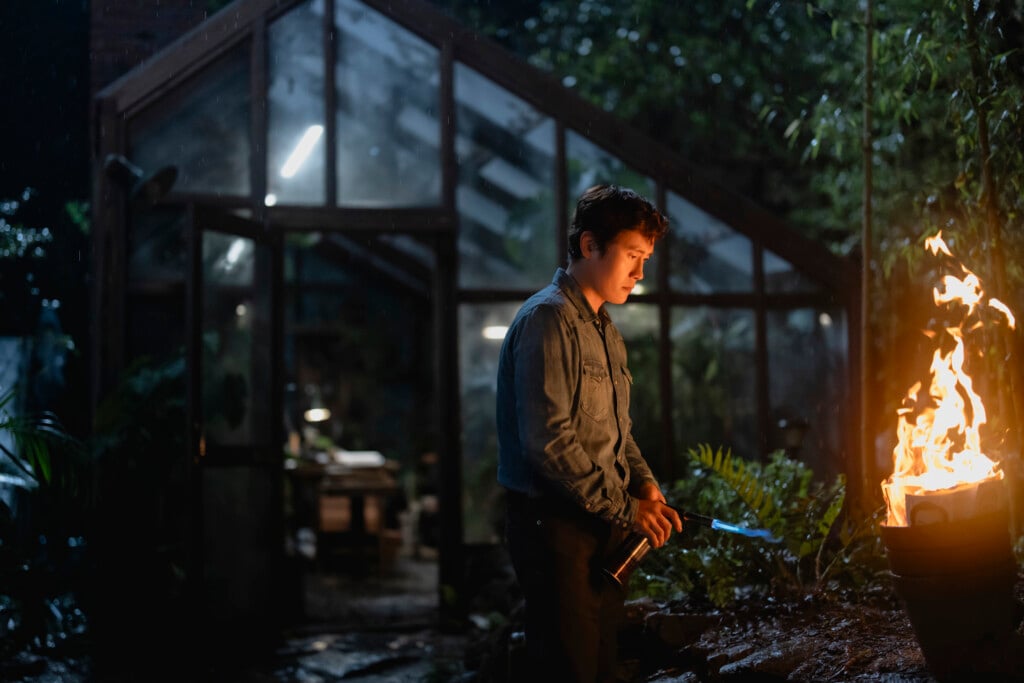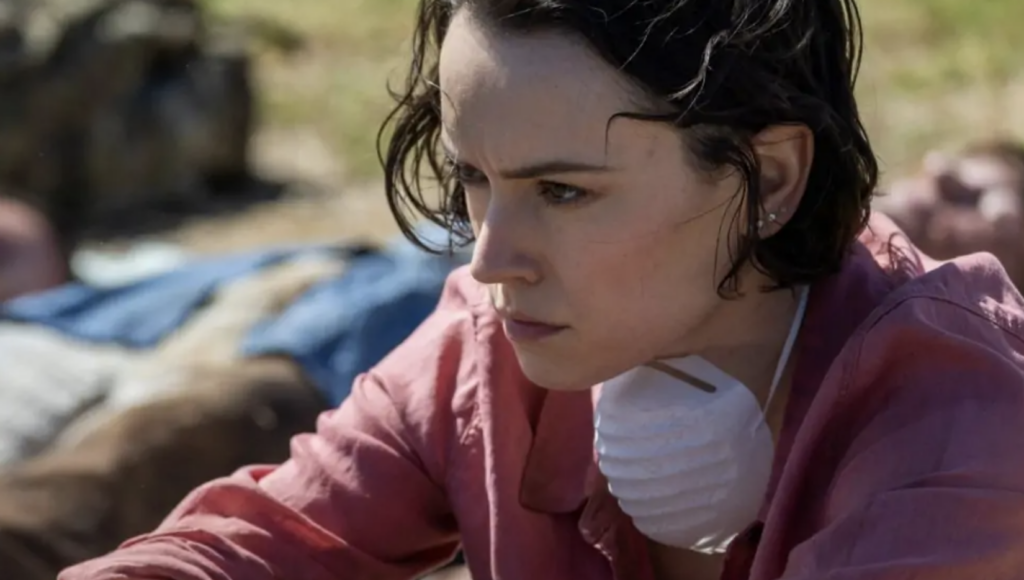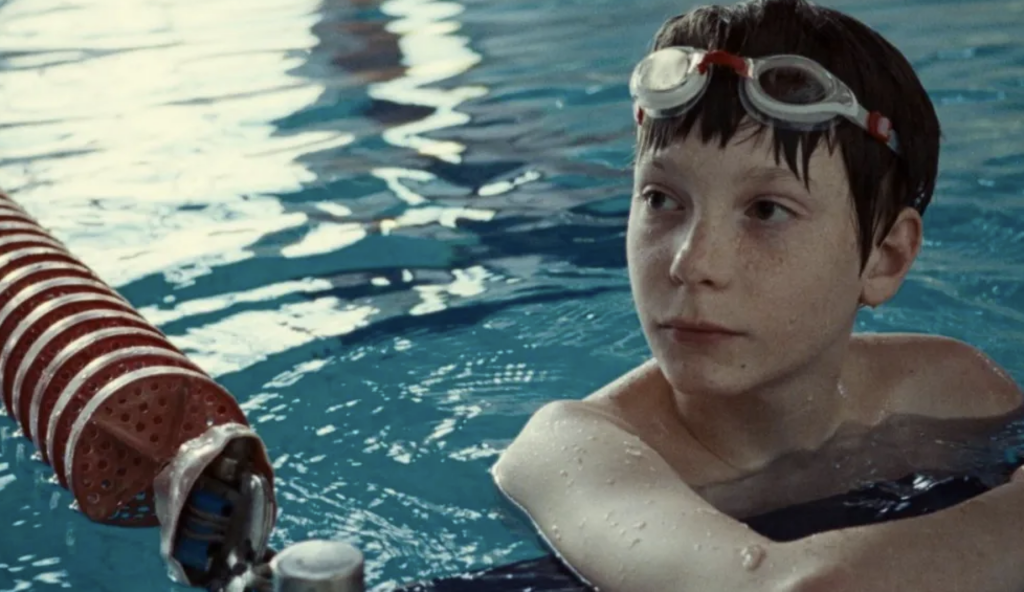One Battle After Another is an anti-fascist clarion call only Paul Thomas Anderson could craft
Over the past three decades, Paul Thomas Anderson has cemented himself as one of America’s greatest living filmmakers by crafting cinematic equivalents of the Great American Novel. Each movie probes a different era of the national experiment and the people who live within it: how grief consumes the ensemble in Magnolia, how capitalism devours everything in its wake in There Will Be Blood, and how the search for meaning collides with power and control in The Master. Yet beneath all of his work runs a current of love, which surfaces fully in One Battle After Another. Stylistically and thematically, the film feels like the culmination of thirty years of questions, finally offering a tentative answer.
One Battle After Another, a loose adaptation of Thomas Pynchon’s novel Vineland, follows the aftermath of a radical left-wing group’s actions in California. After a botched robbery, charismatic leader Perfidia Beverly Hills (Teyana Tayor) turns informant, leaving her partner Bob Ferguson (Leonardo DiCaprio) to raise their daughter Willa in hiding. Sixteen years later, the group is still fractured and living under assumed identities, while the racist former military officer Colonel Lockjaw—who once hunted Perfidia and harbored an obsession with her—rises within a violent white-supremacist club and races to hide his one-time interracial discretion. As Lockjaw (Sean Penn) closes in on Bob and Willa (newcomer Chase Infiniti), Bob and his old comrades struggle to protect her and themselves.
While this all sounds heavy – and the stakes are heavy – the film is an absolute delight, at different times hilarious and heartfelt. Leonardo DiCaprio gives the funniest performance of his career as the stoned-out Bob, Penn embodies libidinal evil better than anyone since Robert F Kennedy Jr, and Infiniti announces herself as a future movie star, serving as the perfect emotional fulcrum for the film to center itself.
Despite its nearly three-hour runtime, One Battle After Another moves with the propulsive energy of Goodfellas, blending action sequences and intimate character beats. After a career of making canonical arthouse films, Anderson has delivered a rare thing in the modern landscape: the perfect adult populist movie.
The film confronts our volatile modern-day landscape better than any other in recent memory in its messaging, cultural analysis, heart and pure entertainment. Its closest counterpoint is probably Ari Aster’s Eddington which, while fairly astute in its cultural analysis, created a stark distance typical to an Aster film – you never felt yourself immersed in the action or in the world. Anderson, by comparison, drops us into the middle of the chaos, letting us feel the stakes rather than merely observe them.
Where the movie stumbles is in its treatment of Black women. Taylor’s Perfidia catalyzes the plot and is written with dimension, but much of her significance is tied to her sexuality. Regina Hall appears only briefly in a key supporting role. It’s hard not to notice that the two dark-skinned women occupy lower rungs of the cast list than their lighter-skinned counterpart does. Yet Anderson handles the film’s racial politics with more honesty and lightness than many of his peers. He gives a big stage for Infiniti, Taylor and rapper Junglepussy, while acknowledging the ugly truth of American politics: that all sides of the political sphere are complicit in the fetishization of Black women. And while Bob may be a clear surrogate for Anderson, he’s not the hero or even the center, just the dad Willa needs, and complicit in the fetishization himself. One quietly heartbreaking scene about Bob’s ignorance regarding his daughter’s Black hair feels deeply personal even without knowing the story behind it.
One Battle After Another feels like a combination of all the disparate phases of Anderson’s career–the kinetic ensemble energy of Boogie Nights and Magnolia, the confused haze of Inherent Vice, the locked-off craftsmanlike focus of Phantom Thread and unabashed beating heart of Licorice Pizza. Anderson’s crew, both new and old, likewise put in some of their best work ever–composer Jonny Greenwood with a breathtaking score, Director of Photography Michael Bauman with incredible composition in every frame and crackling editing from Andy Jerguson, in his second ever feature film credit,. The film’s creative inventiveness also can’t be ignored. I can’t think of another filmmaker able to create so much tension in sequences built around paternity tests or long, barren stretches of California highway.
We often praise art for looking at the world with a cynical, critical gaze–There Will Be Blood being accepted as Anderson’s magnum opus shows that well enough–but what of ones that believe and offer hope? What we need in the face of dark times aren’t reminders of evil inherent in systems and institutions but reminders of light. One Battle After Another finds heroism not in towering, ego-driven figures desperate to belong with the powers that be, but within community leaders, mothers and fathers, and the drive and belief that the younger generation will push forward. It looks through evil to find love and community as the salvation needed to get through each battle, whether small or big.
It’s both a prescient and a timeless message, something that we all need to be reminded of every day.






